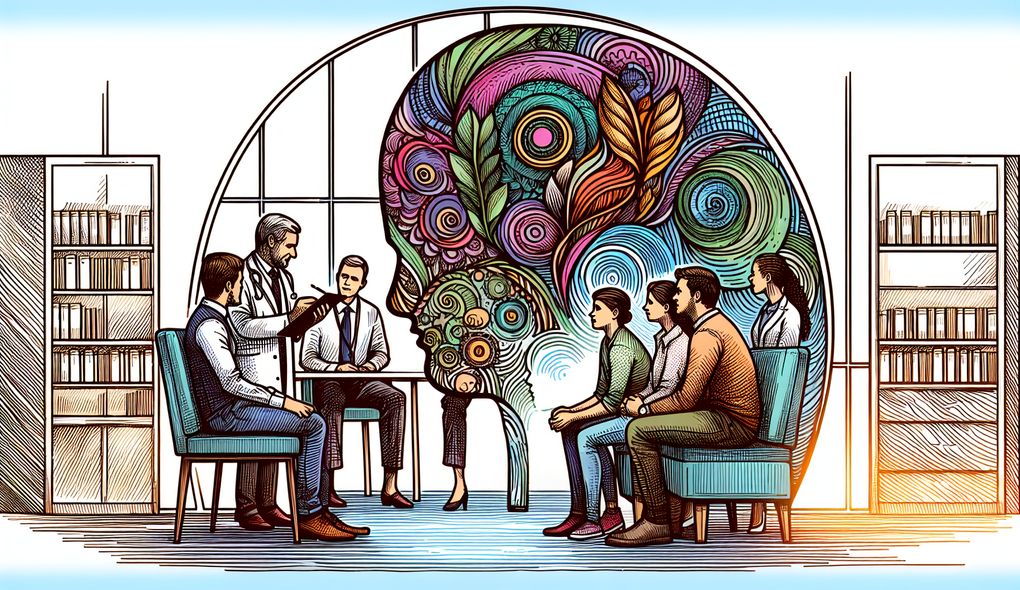Can you describe a time when you had to advocate for a patient's rights and autonomy?
JUNIOR LEVEL

Sample answer to the question:
I had a patient who was admitted to the hospital with a serious medical condition. During my evaluation, I noticed that the patient was not fully informed about their treatment options and was not being included in the decision-making process. I advocated for the patient's rights and autonomy by having a conversation with the medical team about the importance of informed consent and involving the patient in their own care. I also spoke directly to the patient to ensure they understood their options and helped them make an informed decision. By advocating for the patient's rights and autonomy, I was able to empower them to actively participate in their treatment plan.
Here is a more solid answer:
I had a patient who was admitted to the hospital with a serious medical condition. During my evaluation, I noticed that the patient was not fully informed about their treatment options and was not being included in the decision-making process. I immediately took action by scheduling a meeting with the patient, their family, and the medical team to discuss the importance of informed consent and patient autonomy. I presented the patient's case and emphasized the need for their active involvement in decision-making. I also provided educational materials to the patient and their family to increase their understanding of the situation. As a result of these efforts, the patient felt empowered to ask questions, express their concerns, and actively participate in their own care. This improved communication and collaboration among the healthcare team and ultimately led to better outcomes for the patient.
Why is this a more solid answer?
The solid answer provides more specific details about the actions taken by the candidate to advocate for the patient's rights and autonomy. It also highlights the outcomes achieved, such as improved communication and collaboration among the healthcare team and better outcomes for the patient. However, it still does not address the evaluation areas of communication and interpersonal skills, and compassion towards patients with mental health issues.
An example of a exceptional answer:
I had a patient who was admitted to the hospital with a serious medical condition. During my evaluation, I noticed that the patient was not fully informed about their treatment options and was not being included in the decision-making process. Recognizing the importance of communication and interpersonal skills in advocating for the patient's rights and autonomy, I took a collaborative approach to address the issue. I scheduled a meeting with the patient, their family, and the medical team, where I actively listened to the patient's concerns, validated their emotions, and provided reassurance that their voice mattered. I also facilitated open and transparent communication among all parties involved, encouraging them to share their perspectives and actively involve the patient in the decision-making process. To ensure the patient's understanding of the treatment options, I used plain language and visual aids to explain complex medical concepts. Additionally, I demonstrated compassion towards the patient's mental health issues by addressing their emotional well-being and connecting them with appropriate resources for support. The patient and their family expressed gratitude for the respect and empathy shown towards their autonomy and actively participated in the development of a personalized treatment plan. This experience reinforced my belief in the power of communication, compassion, and collaboration in advocating for patient's rights and autonomy.
Why is this an exceptional answer?
The exceptional answer addresses all the evaluation areas mentioned in the job description: communication and interpersonal skills, compassion towards patients with mental health issues, and critical thinking and problem-solving skills. It provides specific details about the candidate's collaborative approach, including active listening, validation of emotions, and use of plain language and visual aids to ensure the patient's understanding. It also demonstrates the candidate's compassion towards the patient's mental health issues and their ability to connect the patient with appropriate support resources. The outcomes achieved, such as the patient and their family actively participating in the treatment plan, further highlight the candidate's effectiveness in advocating for the patient's rights and autonomy.
How to prepare for this question:
- Reflect on past experiences where you have advocated for a patient's rights and autonomy. Think about specific actions you took and the outcomes achieved.
- Develop a strong understanding of informed consent and the importance of patient autonomy in healthcare.
- Practice active listening and effective communication skills to ensure the patient's voice is heard and respected.
- Educate yourself on different resources and support systems available for patients with mental health issues.
- Be prepared to discuss how you collaborate with multidisciplinary teams to advocate for patients and address their individual needs.
What are interviewers evaluating with this question?
- Communication and Interpersonal Skills
- Compassion towards patients with mental health issues

